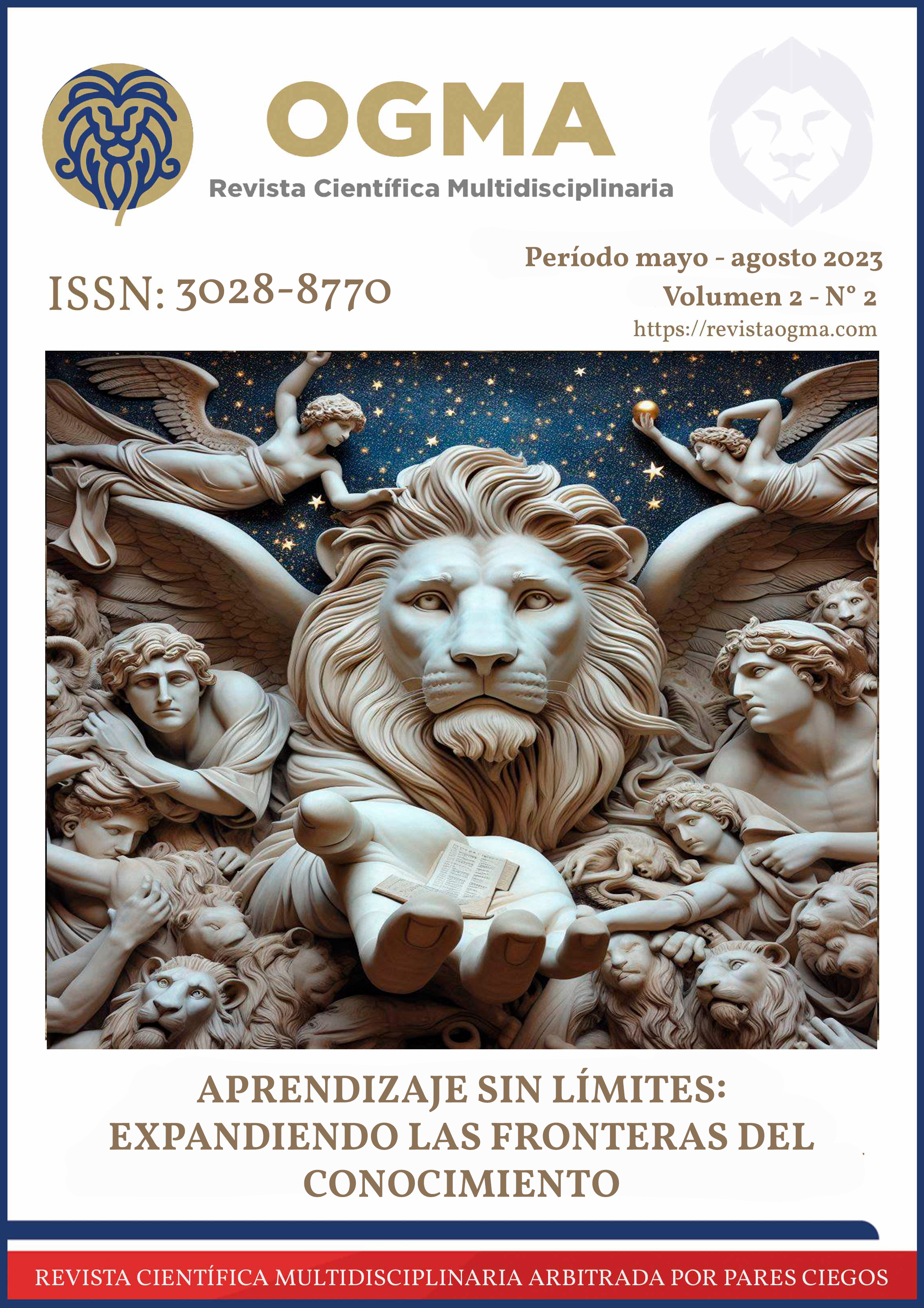Organizational climate and teacher performance: a correlational analysis
Keywords:
Environment, Organizational, Teacher; Performance, WorkAbstract
The purpose of this article was to analyze the influence of the organizational climate on the performance of teachers at the Unidad Educativa Particular Latino in the period 2001-18-1019. The research was of a correlational-cross-sectional type, which made it possible to establish the influence between the two aspects investigated at a given time. From a population of 45 teachers, a sample of 36 teachers was selected, to whom a survey was applied as an ad hoc instrument developed by the authors for this research and validated by consulting specialists. To determine the teaching performance, the analysis of the products of the teaching activity was used. The results obtained showed that the organizational climate in the Educational Unit is very good, when correlated with teaching performance by means of the Chi-square statistical test, with two degrees of freedom and a probability of committing a type I error of 0.10, a value of = 4,61 was obtained, so it is concluded that there is a relationship between the organizational climate and teaching performance.
References
Albert. M. (2009) La investigación educativa: claves teóricas. McGRAW-HILL. España.
Arriola. H. (2012) La inteligencia emocional y la gestión del clima organizacional. Académica española.
Bernal. C. (2010) Metodología de la Investigación. PEARSON.
Comboni. S, Juárez. J. (2011) Introducción a las técnicas de investigación. Trillas.
Corbe (2017) From teacher to manager: expectations and challenge in the further education sector. A relationship model. Research in Post-Compulsory Education, 22(2), 208-220.
Enríquez. M, Calderón. J. (2017) El Clima Laboral y su Incidencia en el Desempeño del Personal Docente de una Escuela de Educación Básica en Ecuador. PODIUM, 131-143. https://revistas.uees.edu.ec/index.php/Podium/article/view/77
Fernández. M. (2008) Desempeño docente y su relación con autodeterminación, autoeficacia y orientación a la meta. https://www.ucss.edu.pe/images/fondo-editorial/revista-studium-veritatis-18/desempeno-docente-relacion-autodeterminacion-religion-lima-benigno-peceros-pinto.pdf
García. A, Carrera.V, Aguilar. E, Vicente. G (2014) Percepción del clima organizacional de profesores universitarios de la Dacs-ujat. Hitos de Ciencias Económico Administrativas. http://revistas.ujat.mx/index.php/hitos/article/view/2005/1588
Hernández, R., Fernández, C., & Baptista, P. (2014). Metodología de la Investigación. PEARSON
Jennings, P.A., Frank, J.L., Snowberg, K.E., Coccia, M.A., Greenberg.T. (2013 Improving classroom learning environments by cultivating awareness and resilience in education (CARE): Results of a randomized controlled trial. School Psychology Quarterly, 28(4).
Lascano J, Quiñonez. V. (2013) El clima organizacional y su incidencia en el desempeño laboral de los trabajadores de la Pontificia Universidad Católica del Ecuador sede Esmeraldas PUCESE (Tesis de grado, Universidad de Israel) http://repositorio.uisrael.edu.ec/handle/47000/372
Ministerio de Educación del Ecuador (2012) Sistema Nacional de Evaluación. Desempeño docente. https://educacion.gob.ec/base-legal/ https://educacion.gob.ec/desempeno-del-docente-sne/
Ministerio de Educación del Ecuador (2012). Estándares de calidad educativa. Aprendizaje, Gestión Escolar, Desempeño Profesional e infraestructura. https://educacion.gob.ec/wp-content/uploads/downloads/2013/03/estandares_2012.pdf
Montenegro. I. (2011). Evaluación del desempeño docente. La Imprenta.
Pinto. B. (2014) Desempeño docente y su relación con autodeterminación, autoeficacia y orientación a la meta. Universidad de San Martín de Porres. Studium Veritatis: Revista de investigación científica, 18. https://books.google.com.ec/books?id=m7iMCgAAQBAJ&pg=PA327&dq=desempe%C3%B1o+docente+y+su+relaci%C3%B3n+con+autodeterminaci%C3%B3n,+autoeficacia&hl=es419&sa=X&ved=0ahUKEwiHrsXMtN3bAhVCz1MKHZd9C3UQ6AEIJTAA#v=onepage&q=desempe%C3%B1o%20docente%20y%20su%20relaci%C3%B3n%20con%20autodeterminaci%C3%B3n%2C%20autoeficacia&f=false
Quintanal. J. (2012). Fundamentos básicos de metodología de investigación educativa. C.C. S. Alcalá.
Sikula. A. (1991). Administración de recursos humanos en empresas. LIMUSA.
Stavroula, S., Labros, S., Georgios, A., Ioannis, P. (2014) The effect of the school internal environment of secondary education on daily work of teaching staff: A systemic approach. Mediterranean Journal of Social Sciences, 5(13), 244-251.
Tacuri. M. (2017) Estudio del nivel del desempeño docente y su posible influencia en el rendimiento académico de los estudiantes del Décimo EGB de la UE Nazaret. http://pucesd.edu.ec/index.php/disertaciones_maestria_ciencias_educacion/1015-_tacuriyolanda_maestrias2017.html.
Valledor y Cevallos (2005) Metodología del investigación educacional. Biblioteca Virtual de Metodología de la Investigación Educacional. Las Tunas. https://es.scribd.com/document/233817987/Libro-MIE-Valledor
Vásquez. A, Jackeline. E. (2017). El clima organizacional y el desempeño docente de la Institución Educativa Pedro Mercedes Ureña (Tesis de grado, Universidad César Vallejo). http://repositorio.ucv.edu.pe/bitstream/handle/UCV/11749/alva_vj.pdf?sequence=1
Villacis, E. (2000) Perfil de Educación Básica de Cotopaxi (Tesis Maestría, Universidad Técnica de Cotopaxi).
Downloads
Published
Issue
Section
License
Copyright (c) 2023 Multidisciplinary Scientific Journal Ogma

This work is licensed under a Creative Commons Attribution-NonCommercial-ShareAlike 4.0 International License.

